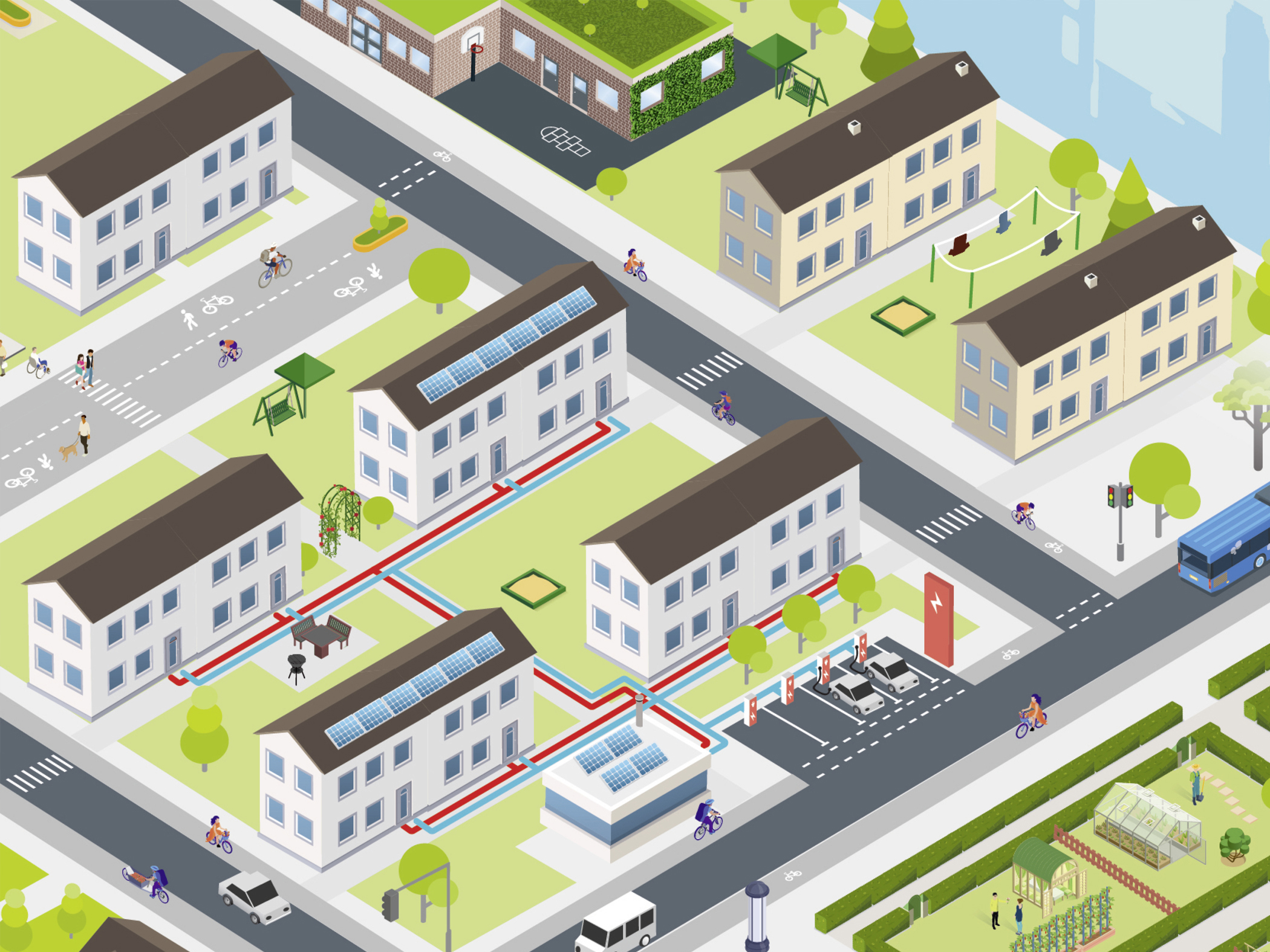Energetic district development
Refurbishment concept relies on intelligent cogeneration of electricity and heat and ensures energy-efficient living space
Construction work has started on an unusual project in Oberhausen-Tackenberg: 836 residential units of the Osterfelder Wohnungsgenossenschaft and the Wohnungsgenossenschaft Oberhausen-Sterkrade will be supplied with climate-friendly local heat in the future. The energy supplier Energieversorgung Oberhausen AG (evo) and the Fraunhofer Institute for Environmental, Safety, and Energy Technology UMSICHT developed the underlying energy supply concept, which includes building renovations by the housing cooperatives.

The background to the project: Germany aims at a virtually climate-neutral building stock by 2050 – set by German government. And since approximately 78 percent of the energy required in buildings is caused by space heating, the project partners focus on this point. The concept for the energetic development of residential districts, by evo and Fraunhofer UMSICHT, couples electricity and heat production intelligently in order to save energy and reduce emissions of climate-damaging CO2.
This builds on results from the "FlexKWK" project completed in 2019, in which a new combined heat and power (CHP) system was constructed for an existing heating network in Oberhausen-Barmingholten: a CHP plant, a large heat storage tank and an electric hot water generator supply 150 residential units in total. Electricity is produced when it is needed. The resulting heat is stored and made available according to the requirements of the heating network. Consequently, the settlement has become a flexible local heating island.
For properties owned by the Osterfelder Wohnungsgenossenschaft and the Wohnungsgenossenschaft Oberhausen-Sterkrade such heat islands are now being established. This process accompanies the construction of low-temperature heating networks with centralized and decentralized heat storage facilities and the refurbishment of selected buildings. In addition, the city of Oberhausen (SBO, Servicebetriebe Oberhausen) participates in the project and examines the opportunity of integrating public buildings into the supply concept. In parallel, comprehensive analyses on the refurbishment status and strategies, and primary energy reduction potential are being elaborated. Overall, this will enable the transfer of the approach to other neighborhoods and a continuously further development.
The name of the project is "District development based on local heating islands with flexible CHP systems and partial renovation" – QUENTIN for short. It is funded by the German Federal Ministry for Economic Affairs and Energy (BMWi) in the EnEff:Stadt research program.
Last modified:
 Fraunhofer Institute for Environmental, Safety and Energy Technology UMSICHT
Fraunhofer Institute for Environmental, Safety and Energy Technology UMSICHT